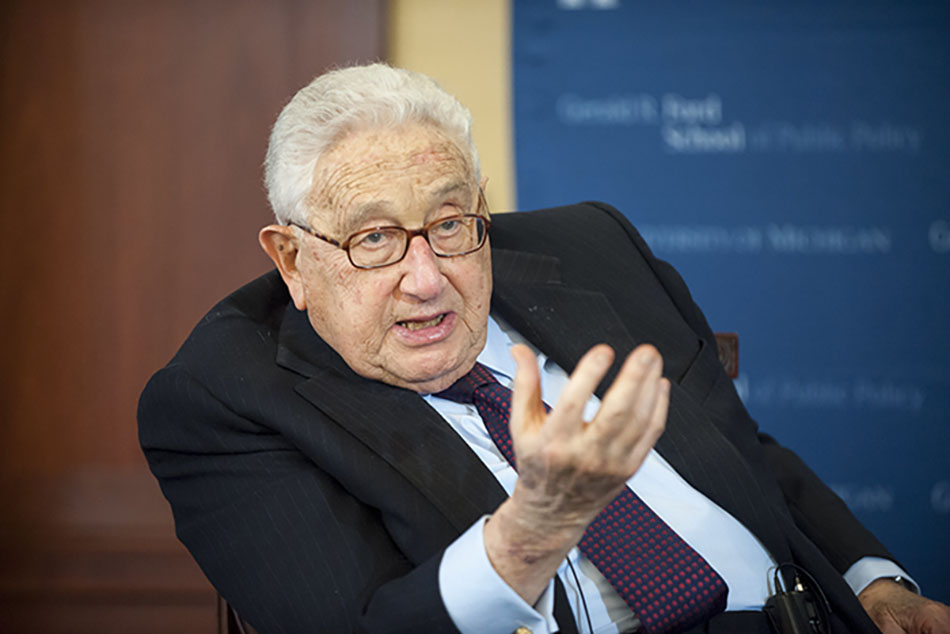
Predictably, war was the talk of the town in Davos this past May. In speeches at the annual World Economic Forum, former U.S. Secretary of State Henry Kissinger and billionaire philanthropist George Soros both offered their own, diverging takes on what the West should and could do to end the hostilities initiated by Russia in late February. Wall Street Journal columnist Walter Russel Mead succinctly captured the differences between the two men's positions: Kissinger "urge[d] against attempts to defeat or marginalize Russia, calling on Ukraine to accept the territorial losses of 2014 to end the war," while Soros "warned that victory in the war against Vladimir Putin's Russia was necessary to 'save civilization' and urged the West to provide Ukraine with everything it needs to prevail."
Russia Matters has decided to advance the indirect debate between Kissinger and Soros by asking Nikolas K. Gvosdev of the Foreign Policy Research Institute and Melinda Haring of the Atlantic Council to explain why they agree or disagree with the key propositions put forward by Kissinger and Soros at Davos (listed below) with regard to the Russian-Ukrainian war and, more widely, how to deal with Russia.
Kissinger has long said Ukraine should have some form of neutrality in order to be a "bridge between Russia and Europe"; at Davos he said that, while "that opportunity ... does not now exist in the same manner, ... it could still be conceived as an ultimate objective."
Soros said at Davos that Russia's invasion of Ukraine "may have been the beginning of the Third World War and our civilization may not survive it."
Kissinger said at Davos that "negotiations on peace need to begin in the next two months," implying that otherwise the war could spill over into other parts of Europe; "ideally," he said, "the dividing line [between Ukraine and Russia] should return the status quo ante," i.e. with Moscow exercising de facto control over Crimea and parts of the Donetsk and Luhansk regions.
Kissinger cautioned against turning the war into a battle “against Russia itself,” rather than for “the freedom of Ukraine,” because “Russia has been, for 400 years, an essential part of Europe,” critical to maintaining a “European balance.” The West’s policies, he said, “should keep in mind the restoration of this role is important to develop, so that Russia is not driven into a permanent alliance with China.”
Soros said that “we must mobilize all our resources to bring the war to an early end. The best and perhaps only way to preserve our civilization is to defeat Putin as soon as possible.”
In his response, Gvosdev sees the two men’s differences flowing from “fundamentally different assumptions about the nature of the international system and whether ‘means’ or ‘ends’ should have primacy in the formulation of policy, as well as their respective sense of time frames for action.” Haring, in turn, believes that Russia is an imperial power that must be defanged; in her response, she largely agrees with Soros, arguing for the Kremlin’s complete defeat, which she defines as “pushing Russia out of the Donbas completely, bringing Russia’s war criminals to justice … and forcing Moscow to pay for the damages it has caused.”
No comments:
Post a Comment